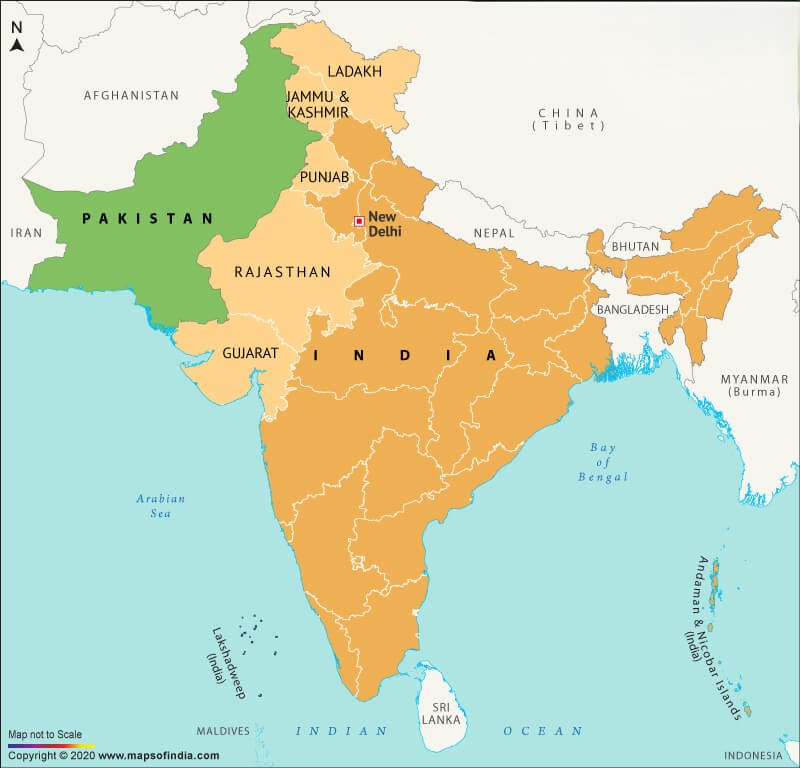
The world today faces crises on multiple fronts, driven by wars and border tensions. In this complex global landscape, India’s security strategy requires a nuanced and pragmatic approach. With a defense budget constituting approximately 1.89 % of its GDP, India struggles to meet the demands of its armed forces. Nearly half of this allocation is directed towards salaries and pensions, leaving limited resources for modernization and infrastructure.
Economic Constraints
India remains a low-middle-income country with a per capita income of around $2,900, ranking among the lowest globally. Comparatively, China, with a GDP nearly six times larger, is still categorized as an upper middle-income country. For India to transition to a higher economic status, it must allocate its scarce resources judiciously, avoiding unnecessary expenditures driven by overt displays of power and avoidable machoism.
Geographic and Strategic Challenges
India shares an extensive 13,000 km land border with its neighbors:
- Bangladesh: 4,000 km
- China: 3,400 km
- Pakistan: 3,300 km
- Nepal: 1,500 km
- Bhutan: 700 km
- Myanmar: 1,600 km
- Afghanistan: Approximately 100 km (disputed)
Additionally, India’s maritime borders connect it with Sri Lanka, Maldives, Thailand, Myanmar, and Indonesia.

Guarding this vast frontier demands significant resources, including troops, equipment, and infrastructure, which cost money. For instance, countering threats from Pakistan and its proxy war requires nearly half a million troops, supplemented by paramilitary forces. This immense commitment underscores the financial and logistical burden of securing borders.
External and Internal Security Interlink
Security issues in India are not confined to its borders. They intertwine with internal challenges, particularly given the strained relations with several neighbors, including Bangladesh, Nepal, Pakistan, China, and Myanmar. Historical disputes, cross-border population movements, and ethnic ties add layers of complexity to border management.
Historical examples worldwide highlight the intricate dynamics between neighboring nations:
- US-Mexico: Cross-border migration and trade disputes.
- Ukraine-Russia: Territorial conflicts and political tensions.
- UK-France: Disagreements over migration and trade.
- France-Germany: A history of wars transformed into cooperation through sustained efforts.
- Israel and neighbors: Persistent territorial and political conflicts.
- Central Asian Republics.
India must learn from these examples and avoid actions that impinge on sensitivities and create regional instability, particularly when it has a warring neighbour which enjoys tremendous superiority .
Avoiding Machoism in Security Policy
Unnecessary displays of aggression or rhetoric can escalate tensions with neighbors and divert attention from pressing economic and developmental priorities. A balanced approach that emphasizes diplomacy, regional cooperation, and internal harmony is essential for long-term stability.
Internal Cohesion as a Security Imperative
Internal harmony is equally critical. Disrupting social cohesion or fostering divisions within the country can weaken its security framework, creating vulnerabilities that adversaries could exploit. Addressing economic disparities, fostering inclusivity, and ensuring equitable development are integral to strengthening both internal and external security.
Conclusion
India’s security challenges are multifaceted, encompassing border management, relations with neighbors, and internal stability. To navigate these complexities, the country must prioritize resource optimization, avoid provocation, and focus on building a robust economy. Strengthening internal unity and pursuing diplomatic engagement with neighbors will contribute to a sustainable and secure future.
If we do not strike a balance and manage our internal and external security challenges optimally our colossal security requirements can get out of control and lead us all to disastrous consequences.
Add a comment





